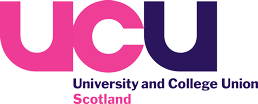Scotland's university staff, students and principals call for certainty for EU university applicants following announcement by UK government
11 October 2016
The bodies representing university staff, students and principals have joined together to call on the Scottish government to offer certainty to EU students already applying to Scotland's universities to start degree programmes in autumn 2017.
The call follows an announcement today from UK universities minister, Jo Johnson MP, which confirms that EU students applying now, to start university and college courses in England in 2017, will be able to continue to access the tuition-fee loan and other funding support for the duration of their course, even where this continues after the UK has formally withdrawn from the European Union.
Applications to start university in 2017 opened on 5 September 2016. The opportunity to study music at the Royal Conservatoire of Scotland closed on 3 October. The next deadline, for applications to study medicine, veterinary medicine and dentistry will close on 15 October. The final deadline for equal consideration to all university courses is 15 January 2017.
Commenting, Vonnie Sandlan, President of NUS Scotland, said: 'EU students bring immense cultural, economic, and educational benefits to our universities and colleges, as well as wider Scottish society. In return for the contribution they make, and the benefits they bring, those students deserve assurances and certainty that Scotland remains an open and welcoming place for them to study. To not do so risks compromising EU students coming to Scotland, and the hugely negative effects that would have.
'A key part of that openness is ensuring that they know their funding is guaranteed, and they have assurances that their status will not be affected by the ongoing risks posed by Brexit. We were extremely heartened by the Scottish government's confirmation earlier this year — to EU students already studying in Scotland, or those planning to start their course in 2016 — that their funding would be guaranteed. It was a strong message of openness and inclusivity, which provided great relief to those students. And it's a message that must be extended to prospective students.
'As we look ahead, and with universities starting to open up their application processes for next year, and EU students starting to make up their minds about where to study, that certainty must be repeated for future years. We must see further assurances from Scottish government for those students, that their funding will be guaranteed and that Scotland remains an open and welcome country to study in and call home.'
Mary Senior, UCU Scotland official, said: 'The UK government's statement on the rights of EU students is good news, if somewhat late in the day given students are already applying for courses. It is time now for the Scottish government to guarantee funding for the 2017/18 intake of EU students into Scottish Universities.
'We also need to keep the pressure on the UK government to guarantee the rights of the many EU nationals working in our universities and who do the teaching and research which makes Scottish higher education world class. Staff and students from across the globe greatly enrich the Scottish higher education system and we cannot allow the negativity from last week's Conservative Party Conference to damage the reputation of our world class institutions'.
Alastair Sim, Director of Universities Scotland, said: 'This confirmation from the UK government is overdue but it is welcome news. Applicants from across the EU have been applying to university since 5 September and until now neither they, nor universities, have had any certainty on their funding status if the UK exits the EU during their degree. We are delighted that the UK government has provided this assurance for universities in England. This is the right decision - but UK government now needs to be clear about the post-Brexit immigration status of EU students across the UK.
'Scotland's universities and EU applicants applying here really need certainty from the Scottish government on the fee status for courses starting in 2017. Universities are already receiving thousands of applications and they need to start making offers now. It is very difficult to ask EU applicants to make decisions about the next four years of their life without knowing if they are entitled to fee-free higher education or not. Universities, already facing funding pressures, are in the extremely difficult situation of deciding whether to make offers to students without knowing if or where the funding for their education will come from.
'Having EU students study in Scotland, as part of our higher education community, adds so much to the educational and social experience we can offer to all students. We value their contribution immensely. The Scottish government acted quickly in July to provide certainty for EU students who are already enrolled on courses in Scotland. Now, there is a real need to provide certainty to those who hope to start at a university in Scotland next academic year.'
Commenting on the typical four-year undergraduate degree in Scotland and how it will work within the UK government announcement, Alastair Sim said: 'Scottish undergraduate degrees are typically four, rather than three, years in length. Assuming Brexit does take two years to negotiate from March next year, EU students here in Scotland are likely to remain on their degree for two years after the UK has left the EU rather than just one for those studying in England. We need to be sure that these rights cover all EU students on all Scottish undergraduate degrees.'
- PrintPrint this page
- Share


